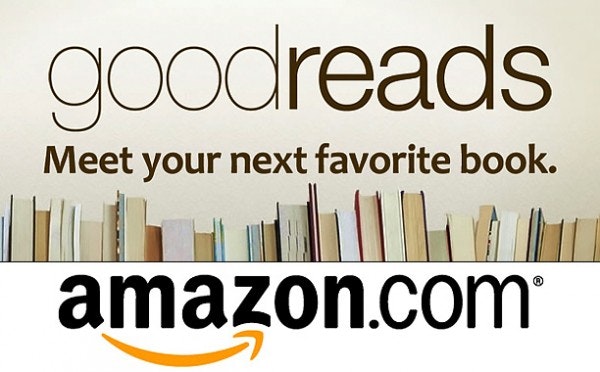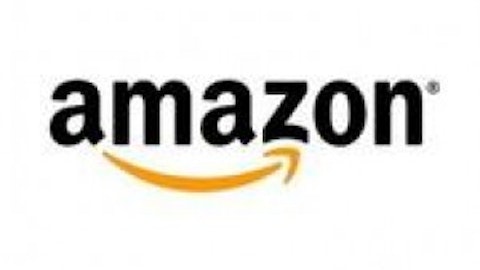Last week, Amazon.com, Inc. (NASDAQ:AMZN) spent an estimated $150 million on Goodreads, a social network for book lovers. The website has amassed a far from intimidating 16 million members, 23 million book reviews, and 530 million titles those book lovers have read. If the $150 million price tag is accurate, Amazon.com, Inc. (NASDAQ:AMZN) paid nearly $10 per user, which makes it look like a great deal compared to Facebook Inc (NASDAQ:FB)’s current price of about $62 per user.
The media are loving this deal, and not just because Amazon.com, Inc. (NASDAQ:AMZN) got a good price per user ratio. However, they’re missing a big reason why this acquisition is great for Amazon.

What others are saying
Here’s a quick rundown of what others in the media have said about Amazon.com, Inc. (NASDAQ:AMZN)’s acquisition of Goodreads.
1). Amazon’s acquisition keeps the property out of the hands of its competition. Barnes & Noble, Inc. (NYSE:BKS)’s Nook division has been struggling mightily at the hands of Amazon. Had the company been able to acquire Goodreads, it could have revived its digital presence, and perhaps stood a better chance against the e-Book giant. Currently, Barnes & Noble holds just 25% of the growing e-Books markets compared to Amazon.com, Inc. (NASDAQ:AMZN)’s 65%.
2). To prevent Goodreads from becoming a competitor in its own right. Amazon’s Kindle publishing platform has been a boon for independent authors, many of whom promote themselves through Goodreads. Had the website leveraged its user base to become a publisher and distributor, it may have posed a very serious threat to Amazon.
3). To integrate social features into amazon.com. Some suggest that Amazon could leverage the Goodreads brand to create a much wider social network that integrates with its flagship website – a ‘Facebook of Books’ (or FaceBOOK if you’re into puns). With so many authors promoting their work on Facebook and other social networks, an Amazon social network would benefit them greatly as it’s more closely integrated with a sales platform.
4). To gain access to valuable data. Combining Goodreads data on the preferences of its 16 million users with the information Amazon might already have on those same readers will allow it to make better recommendations. Additionally, those data can help improve Amazon’s sales and marketing initiatives.
5). To access more credible reviews. Amazon has had several cases involving authors buying or manipulating reviews for their books. It’s much more difficult to create fraudulent reviews on Goodreads as there’s less anonymity. Furthermore, Goodreads users generally give more critical reviews, resulting in wider variability and more useful information for potential buyers.
While all of these benefits have their merits, there’s one big thing most of the media aren’t talking about.
Amazon is targeting people that buy books!
For those of you not familiar with the Pareto principle, or 80-20 rule, it’s quite simple: 80% of the effects come from 20% of the causes. This is extremely accurate for book purchases in that 20% of adults buy 79% of all books.
So, my excitement over this acquisition is less about integrating Goodreads with Amazon than it’s about integrating Amazon with Goodreads.
With the purchase of Goodreads, Amazon can have exclusive access to a property where those frequent book buyers congregate on a regular basis. Book nerds are migrating away from bookstores, and finding more recommendations from friends and the internet (and internet friends).
According to Codex, a research group specializing in book audiences, nearly two-thirds of frequent book buyers have eReaders or tablets as of last December. That’s more than double from the year prior, and more than triples the number in 2010.
As a result, the percentage of book discoveries in physical stores fell from 32% in 2010 to 20% in 2012 and the percentage of discoveries made online doubled from 5% to 10% during the same period. As eReaders become more popular this trend is sure to continue, as eReader owners are reportedly twice as likely to discover books digitally.
So, it’s easy to see the benefits of being the premier book retailer on a website like Goodreads. For a long time, Amazon was the exclusive retailer linked to by Goodreads. The website previously used Amazon’s API to gather book data and images. Goodreads overhauled its website ditching Amazon’s API last January, however, resulting in prominent positioning for links to Barnes & Noble.
Since then, Goodreads’ user base has more than doubled and the websites influence on book purchases has certainly increased. The potential for Goodreads’ American user base to expand is likely capped by the 20% of adults (44 million) making 79% of book purchase, but that means it can still triple its user base before looking to expand abroad.
Amazon has the infrastructure to expand this website relatively quickly, which will help accelerate its dominance in book and eReader sales, much to Barnes & Noble’s chagrin. In Codex’s most recent survey, 5% of frequent book purchasers had visited Goodreads in the previous week. Yet, book-centric social networks accounted for as much book discovery as search engines and social sharing sites like Pinterest combined. Amazon will likely be able to improve the stickiness of the website as well, which will further increase its influence.
The big wins
With the Goodreads acquisition, Amazon is going after the customers that can provide them with the most sales. It can use Goodreads brand to market its books and eReaders to the people most likely to buy them. While the rest of the media is focused on what I believe are ancillary benefits, the big wins lay in the hands of the 20% of the population most likely to use Goodreads and make 80% of book purchases on Amazon.
The article The Biggest Reason Amazon’s Goodreads Acquisition is Good Business originally appeared on Fool.com and is written by Adam Levy.
Copyright © 1995 – 2013 The Motley Fool, LLC. All rights reserved. The Motley Fool has a disclosure policy.

